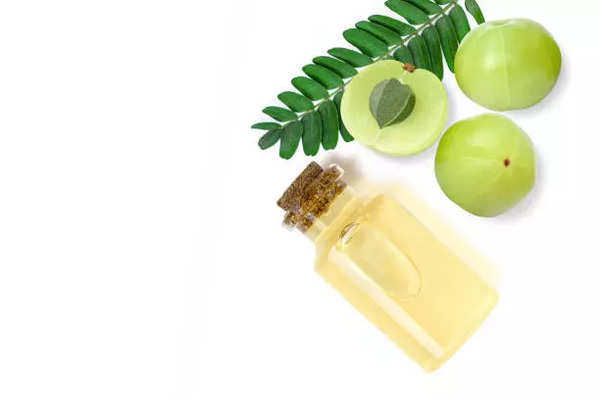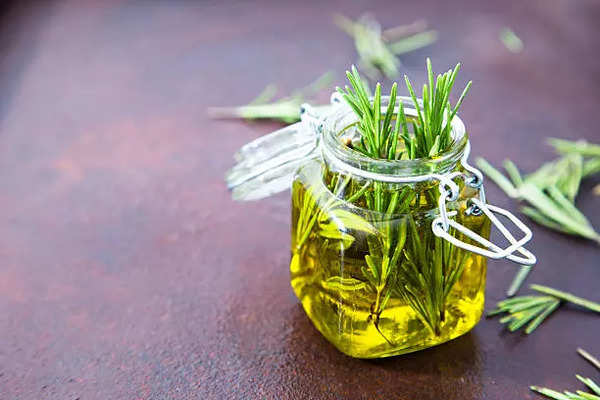
Winter can be harsh on hair, leading to dryness, breakage, and sluggish growth. A nourishing hair oil is often the go-to remedy for combating winter woes, and two popular choices are amla oil and rosemary oil. Both are known for their hair-strengthening properties, but which is better for promoting hair growth during the colder months? Let’s break down their benefits, differences, and how to choose the right one for your hair.
Amla Oil: The traditional elixir
Amla oil, derived from the Indian gooseberry, has been a staple in Ayurvedic hair care for centuries. It is rich in vitamin C, antioxidants, and essential fatty acids that nourish the scalp and strengthen hair.
Benefits of Amla Oil for hair growth
Scalp nourishment: Amla oil deeply moisturises the scalp, making it an excellent choice for combating winter dryness and flakiness.
Strengthens hair roots: The high vitamin C and antioxidant content boost collagen production, fortifying hair follicles and promoting growth.
Reduces hair fall: Its anti-inflammatory and antimicrobial properties help keep the scalp healthy, reducing hair fall caused by infections or dandruff.

Prevents premature greying: Amla is often praised for preserving natural hair colour and delaying greying.
Best for:
– People with dry or flaky scalps.
– Those looking to prevent hair fall and premature greying.
– Individuals seeking an all-natural remedy for hair strengthening and hydration.
Rosemary Oil: The stimulating herbal remedy
Rosemary oil is an essential oil extracted from the leaves of the rosemary plant. It is lauded for its ability to improve blood circulation and stimulate hair follicles.
Benefits of Rosemary Oil for hair growth
Boosts circulation: Rosemary oil increases blood flow to the scalp, ensuring that hair follicles receive essential nutrients for growth.
Encourages new hair growth: Studies suggest rosemary oil may be as effective as minoxidil in treating androgenetic alopecia (hair thinning or baldness).
Fights dandruff: Its antimicrobial and anti-inflammatory properties help prevent dandruff and soothe irritated scalps.
Improves hair texture: Rosemary oil enhances hair thickness and shine, giving a healthier appearance.

Best for:
– Individuals experiencing hair thinning or balding.
– Those with oily scalps prone to dandruff.
– People looking for a natural alternative to chemical hair growth treatments.
Differences between Amla Oil and Rosemary Oil
Source and composition: Amla oil is a carrier oil made from amla fruit, rich in vitamin C and antioxidants. Rosemary oil is an essential oil, potent and highly concentrated, requiring dilution before application.
Moisturising vs stimulating: Amla oil excels at providing hydration and nourishment, making it ideal for dry, brittle hair. Rosemary oil focuses on stimulating blood flow and promoting follicle activity, which is better for hair regrowth.
Application method: Amla oil can be applied directly to the scalp and hair, while rosemary oil should be mixed with a carrier oil like coconut or jojoba oil to prevent irritation.
Hair concerns: Amla oil is more suitable for dry, flaky scalps and premature greying, whereas rosemary oil is perfect for combating thinning hair and boosting volume.
How to use these oils
Amla Oil: Warm the oil slightly and massage it into your scalp. Leave it on for at least an hour or overnight before washing it off with a mild shampoo. Use 2–3 times a week for best results.
Rosemary Oil: Mix a few drops of rosemary oil with a carrier oil and massage it onto your scalp. Leave it for 30 minutes before rinsing. Alternatively, add a few drops to your shampoo or conditioner.
Which is better for winter hair growth?
The choice between amla oil and rosemary oil depends on your hair type and concerns:
– For dry, brittle hair: Amla oil is better for winter as it provides deep hydration and tackles scalp dryness.
– For hair thinning: Rosemary oil is ideal for stimulating hair follicles and promoting regrowth.
– For overall hair health: Both oils complement each other and can be used in combination for maximum benefits.
Quick winter hair care tips that will keep your hair healthy and shiny
Both amla oil and rosemary oil have proven benefits for hair growth, particularly during the winter months when hair tends to need extra care. Amla oil is a nourishing solution for dryness and strengthening, while rosemary oil excels in stimulating growth and improving texture. To reap the most benefits, consider alternating between the two based on your specific hair needs.





